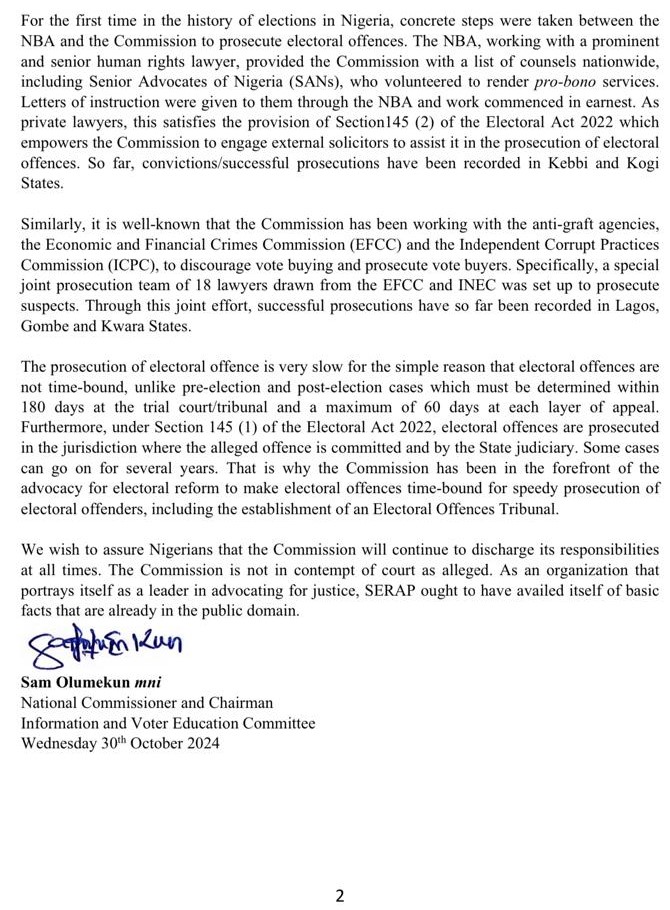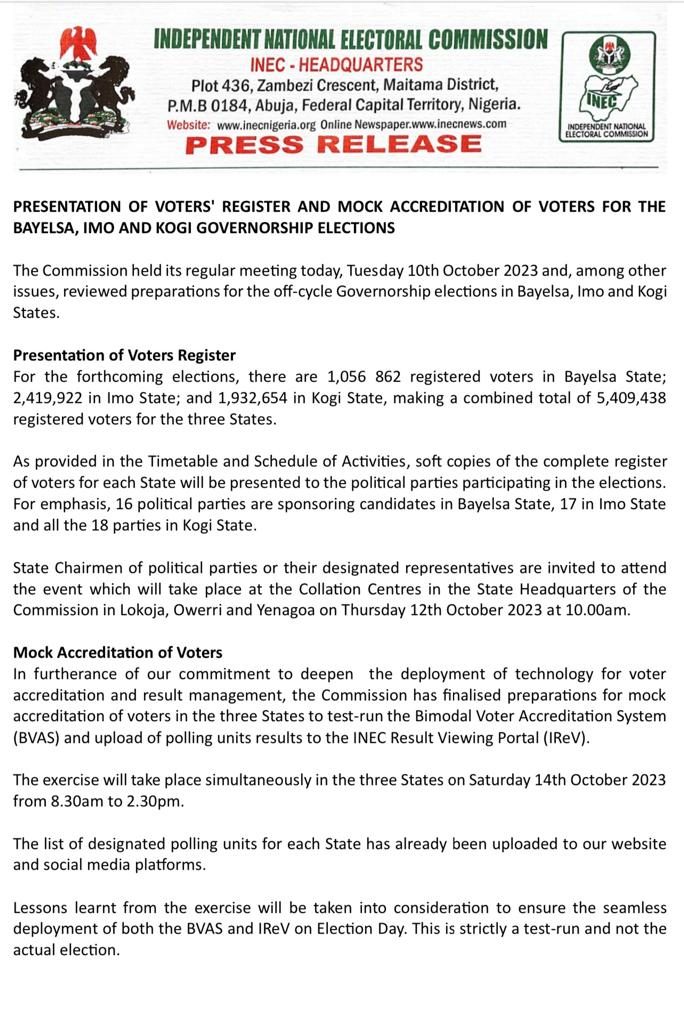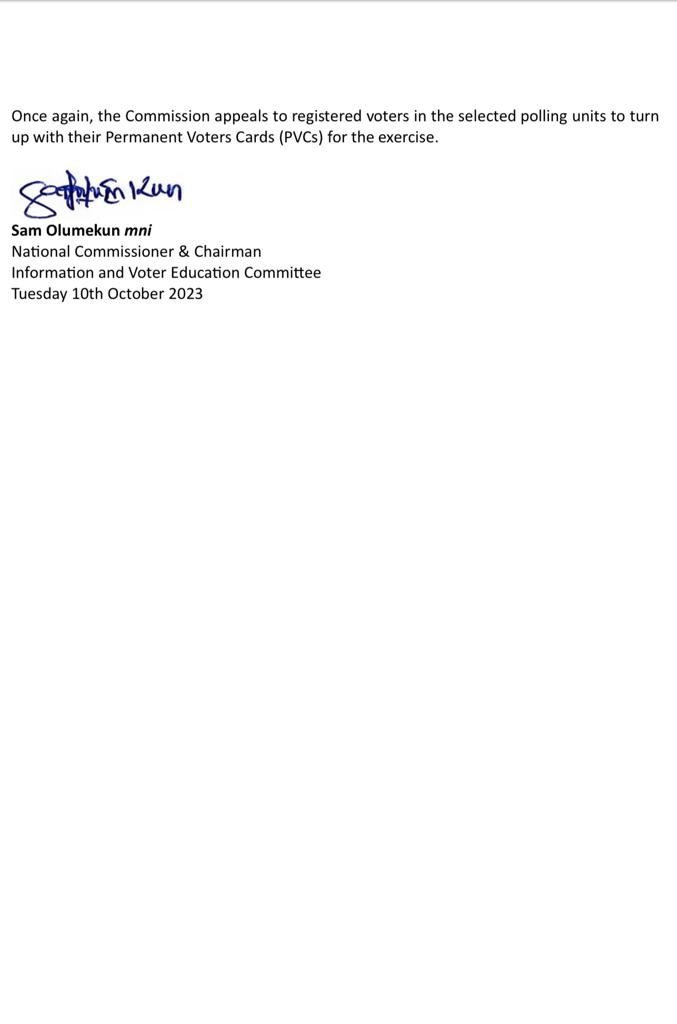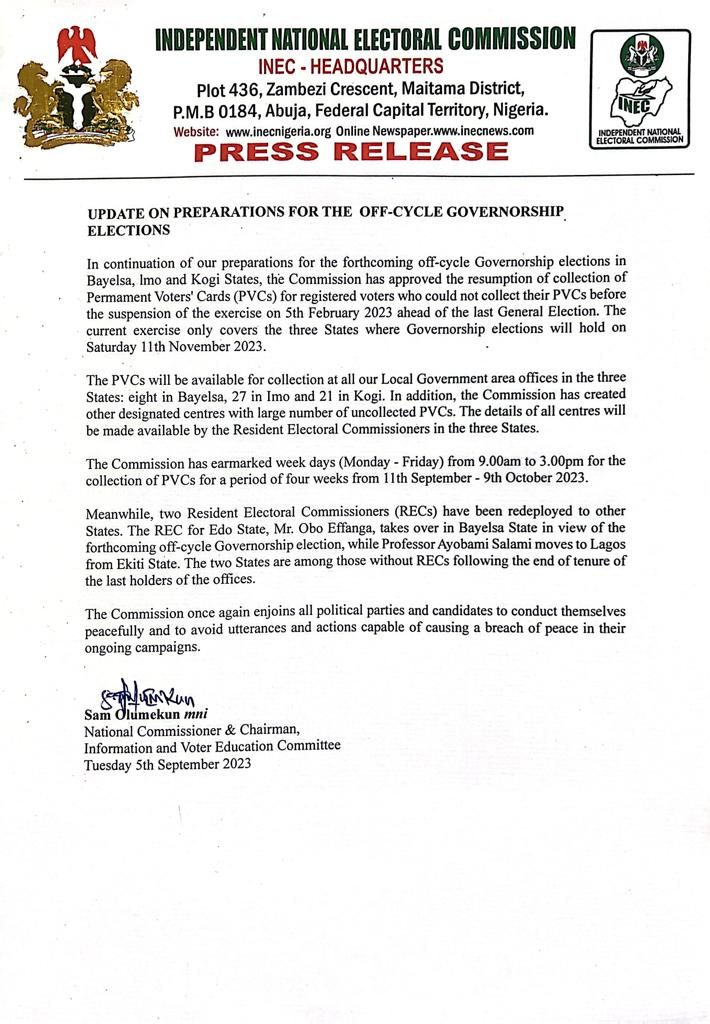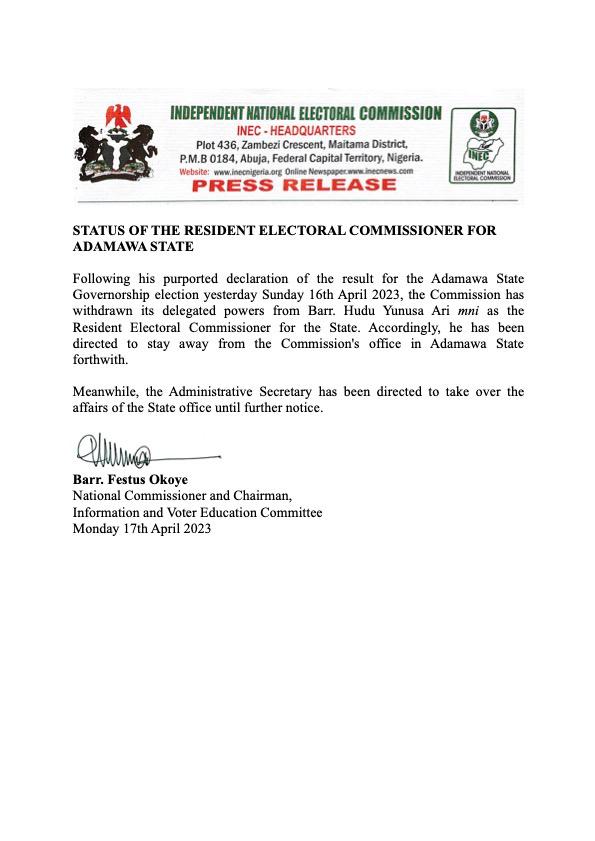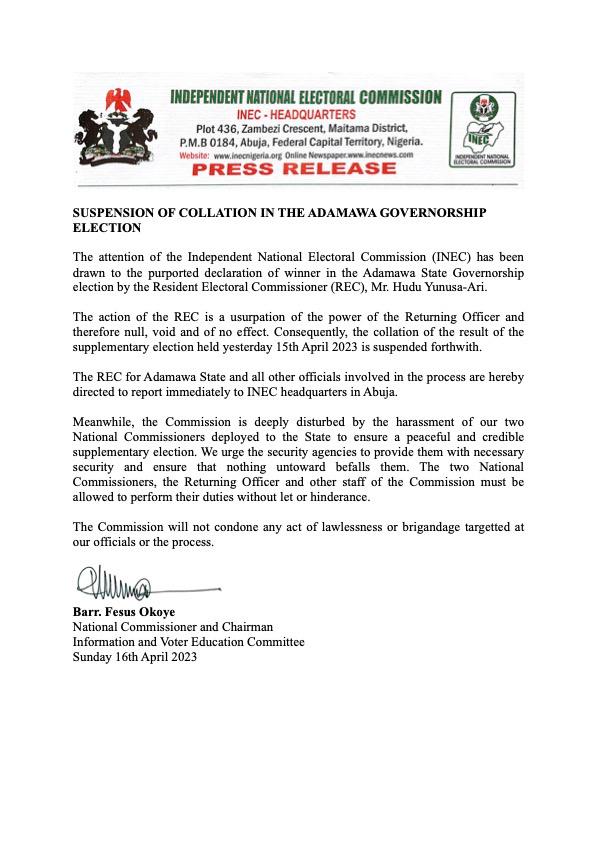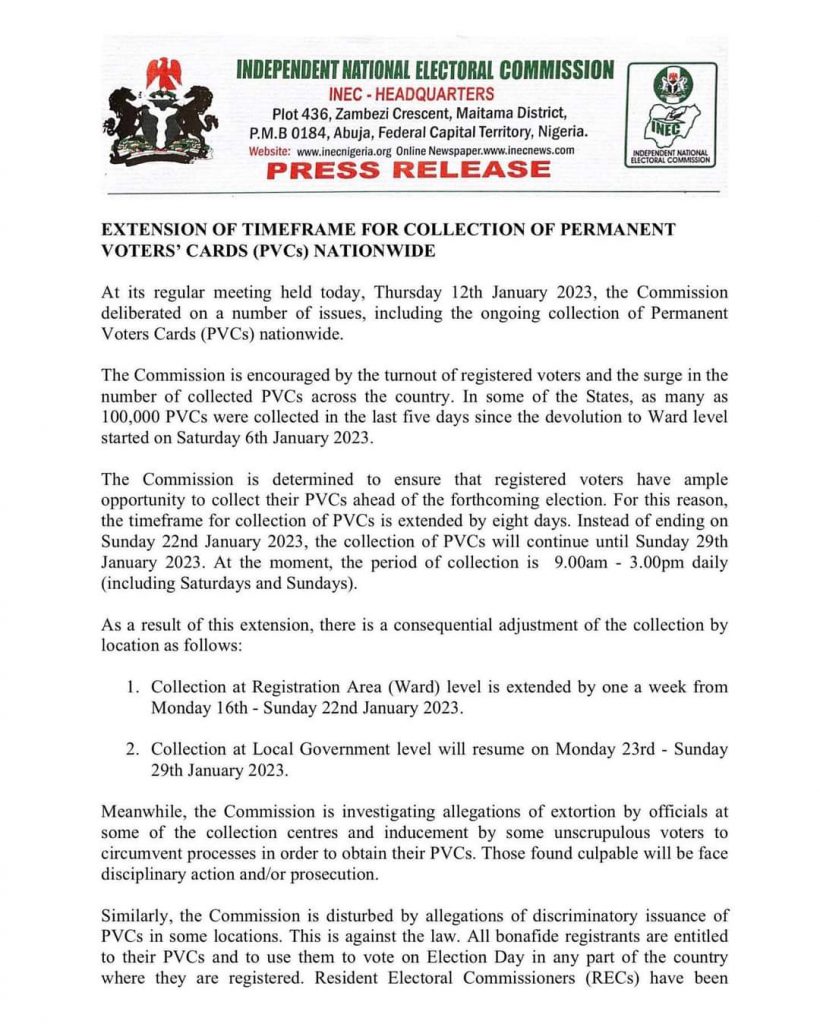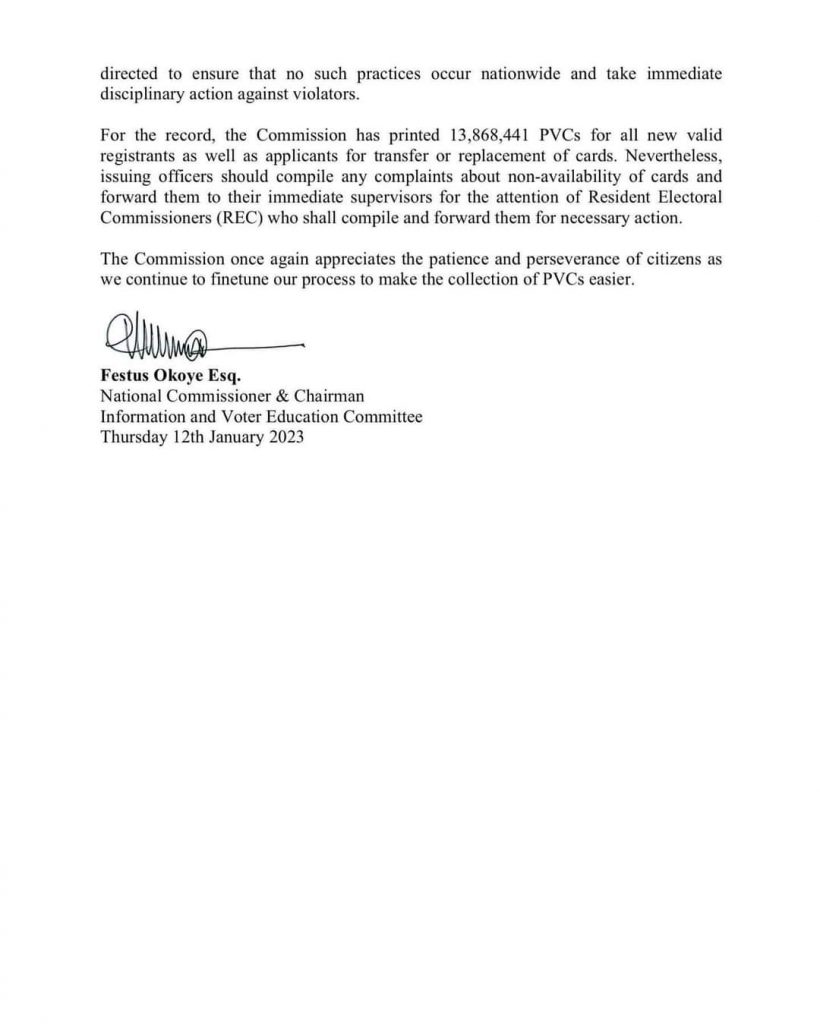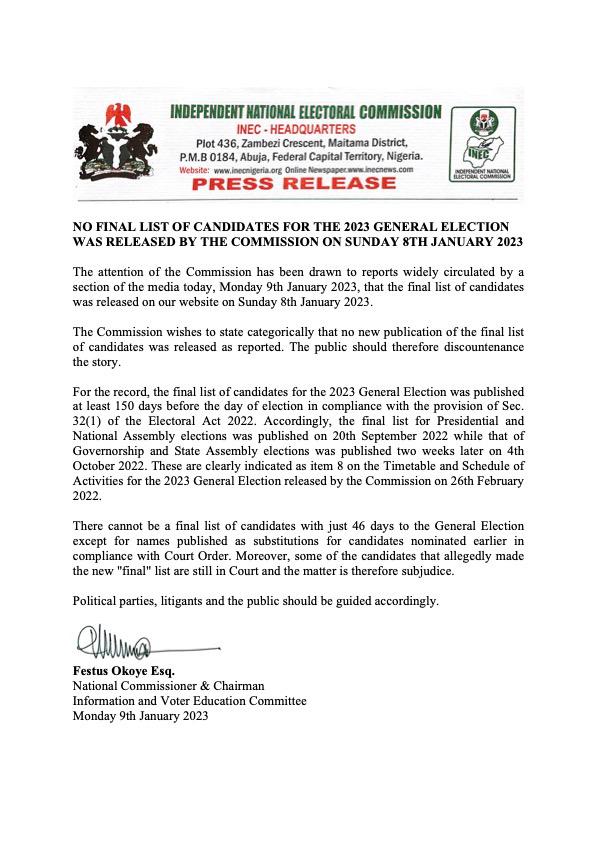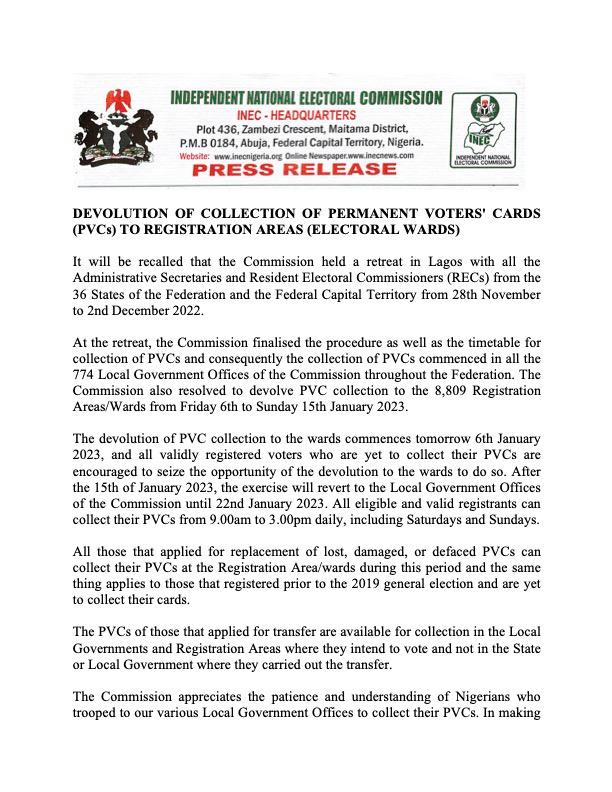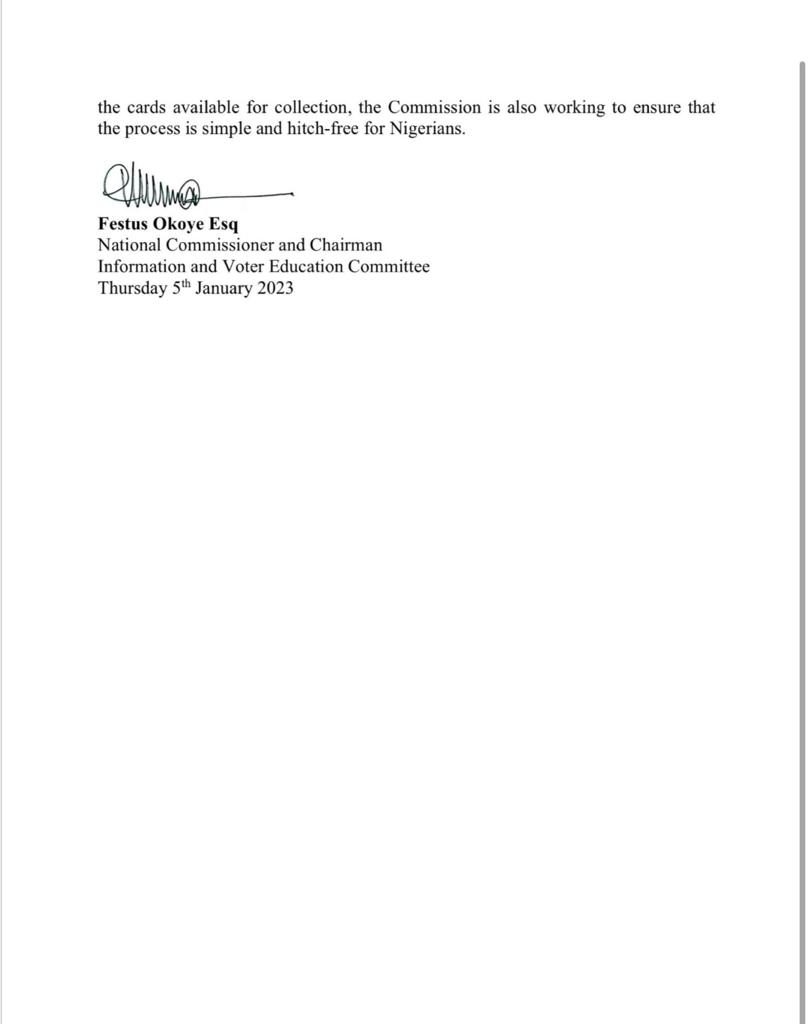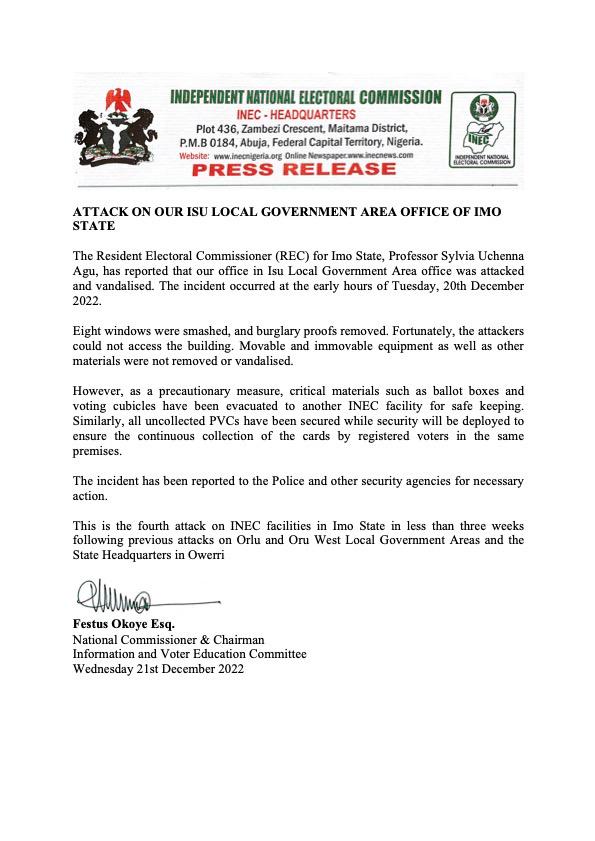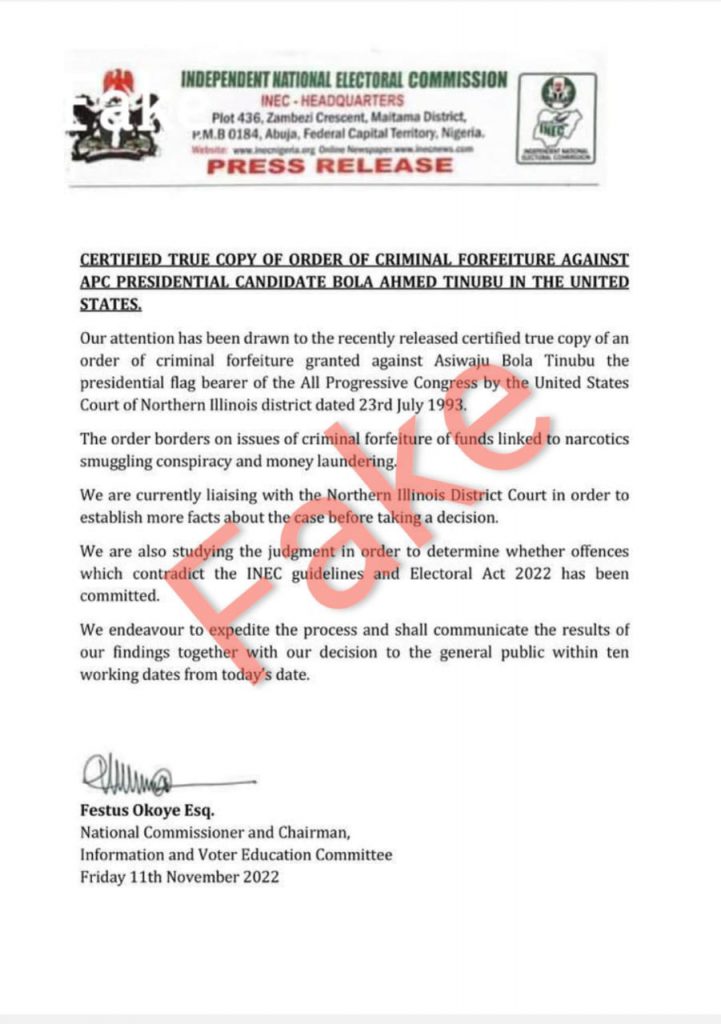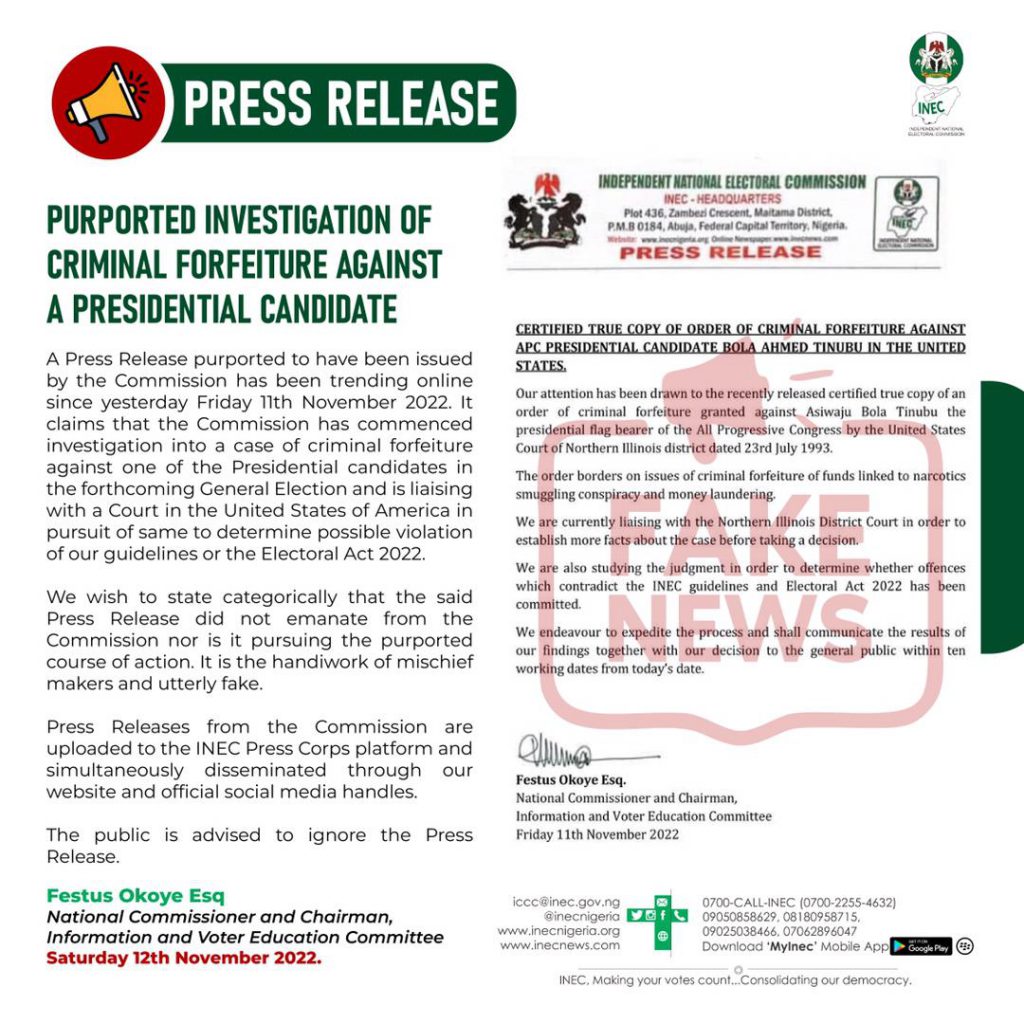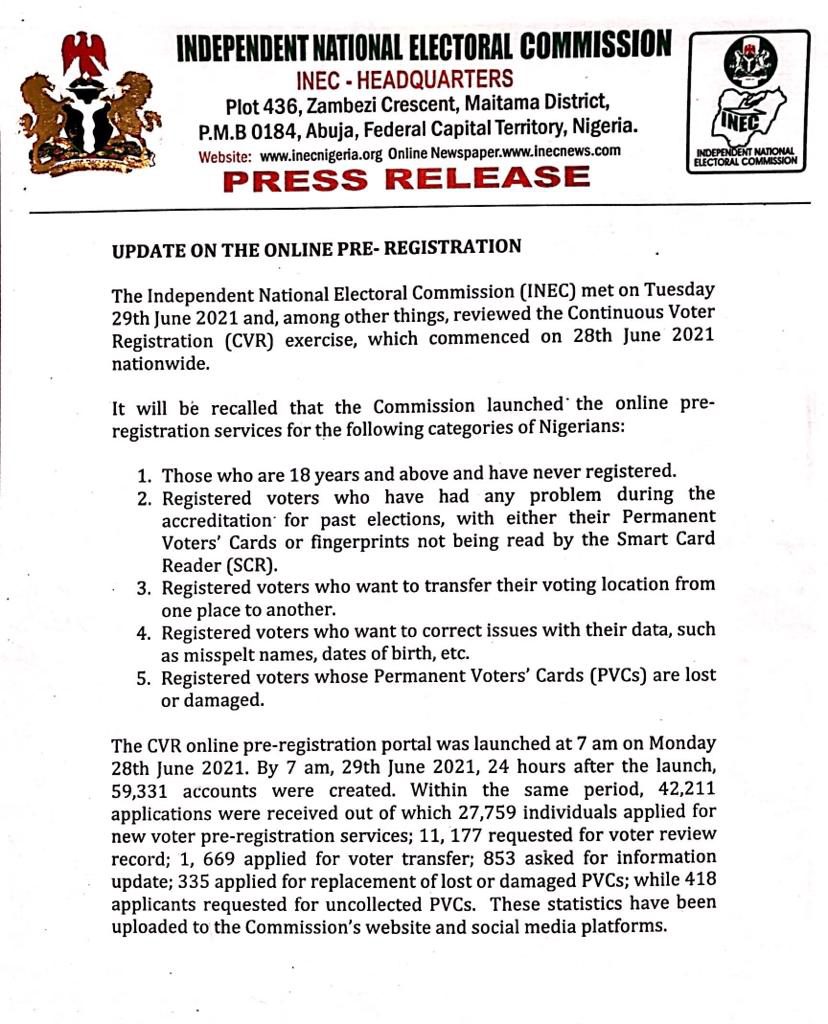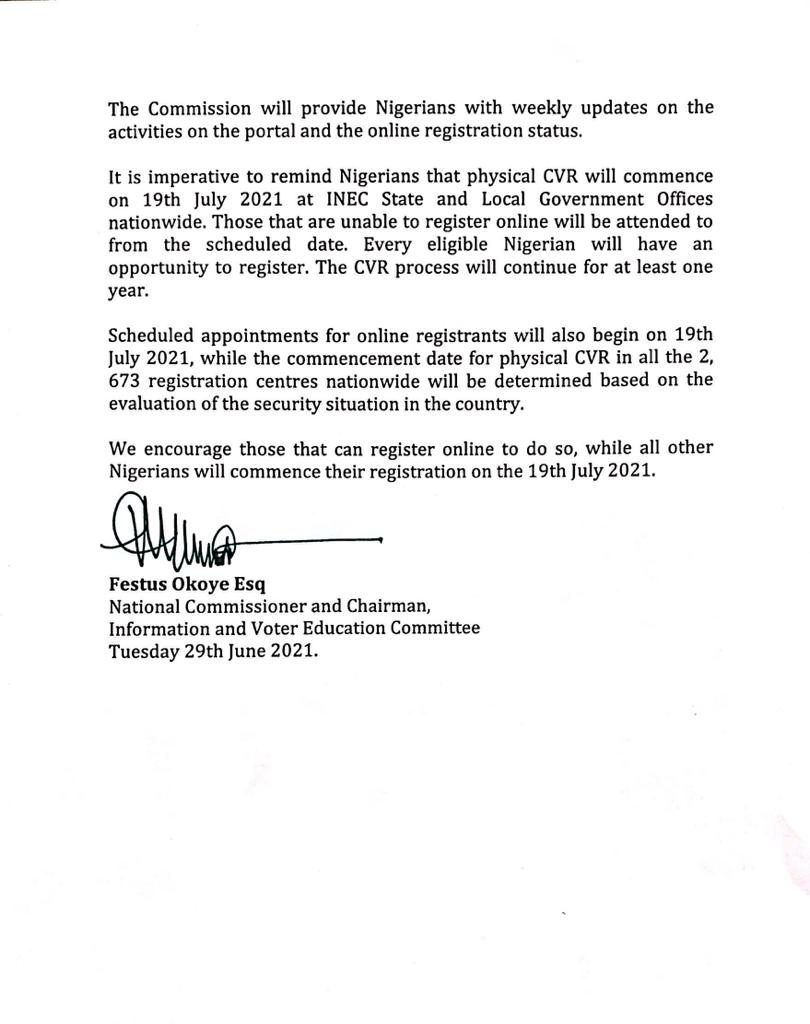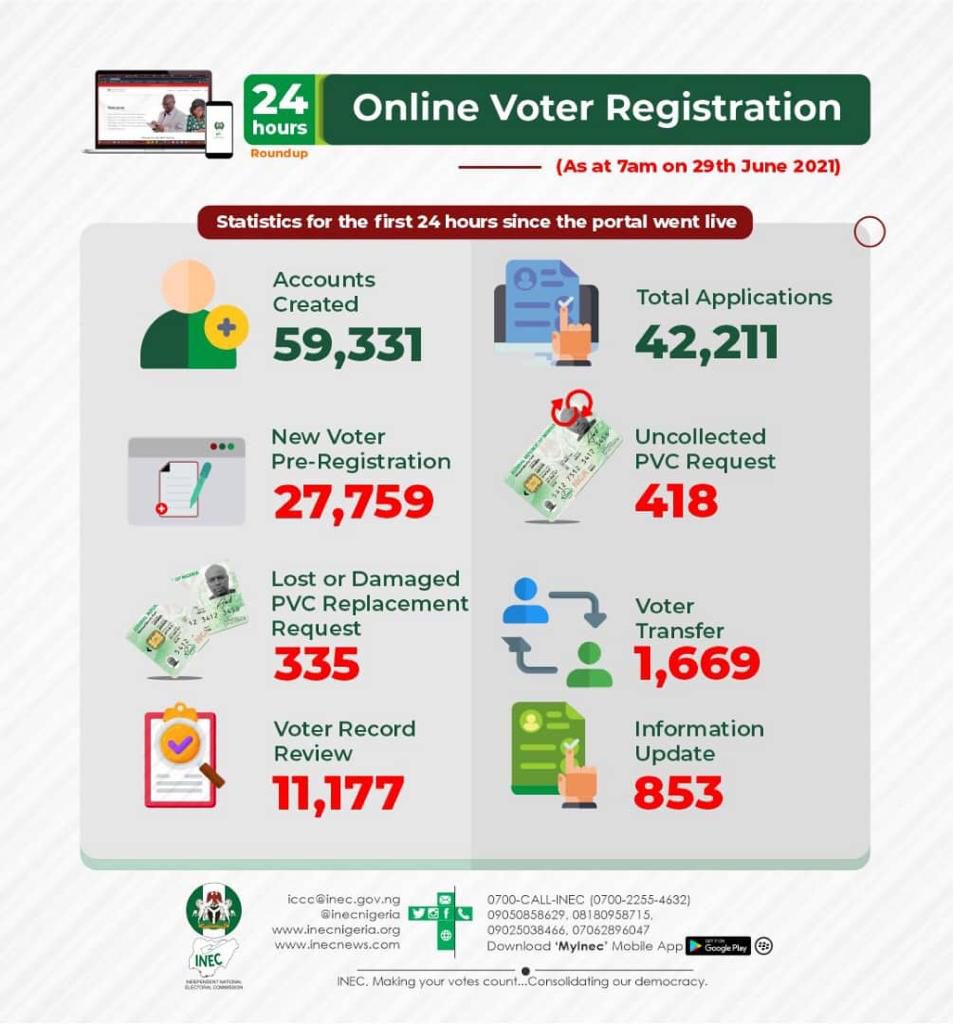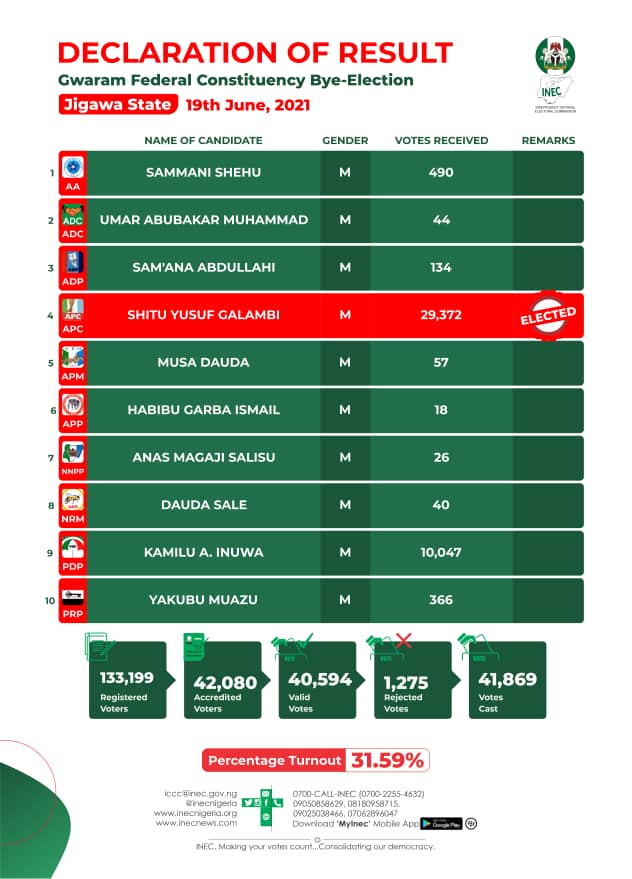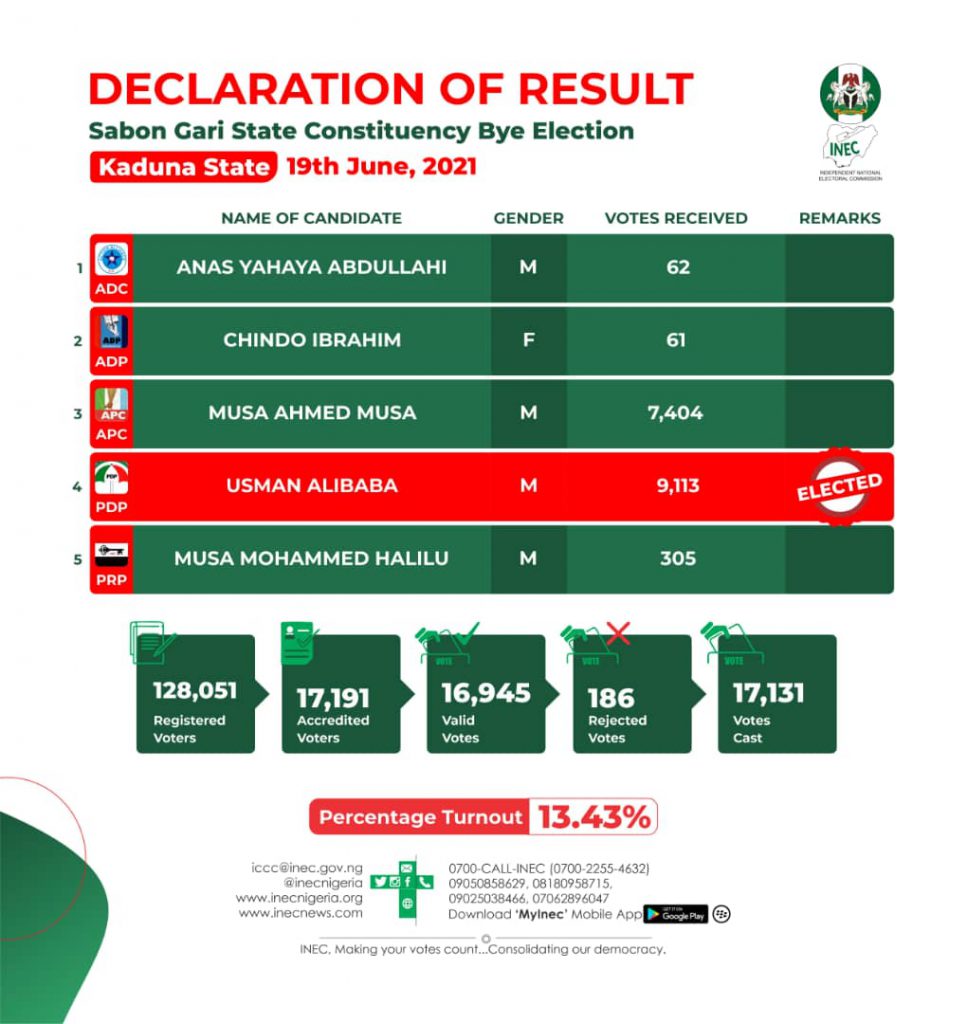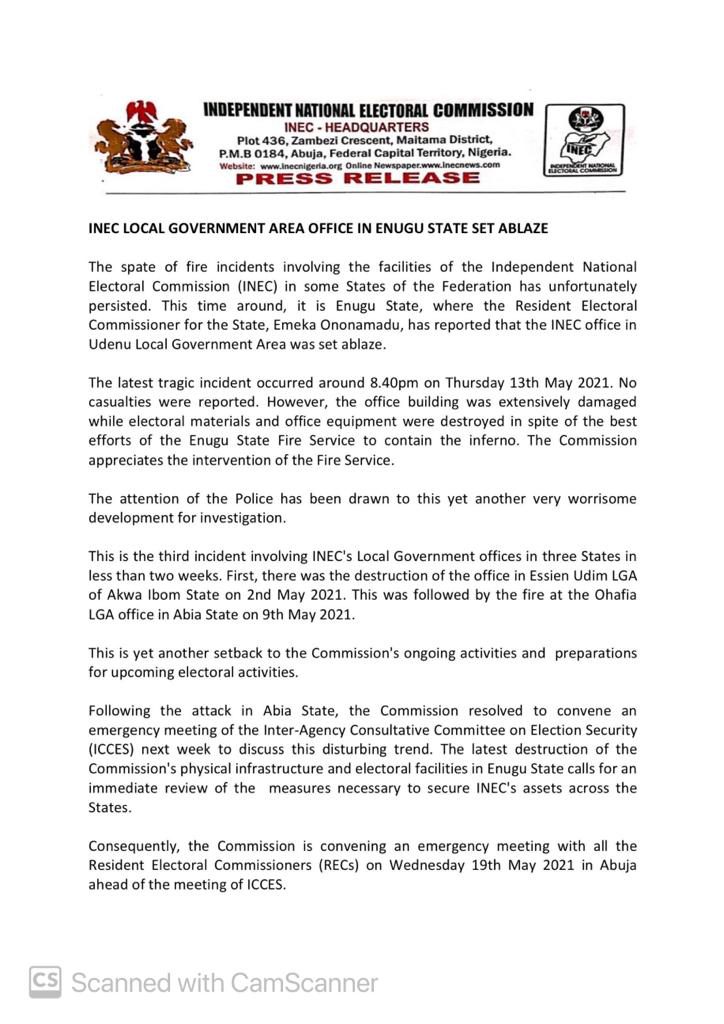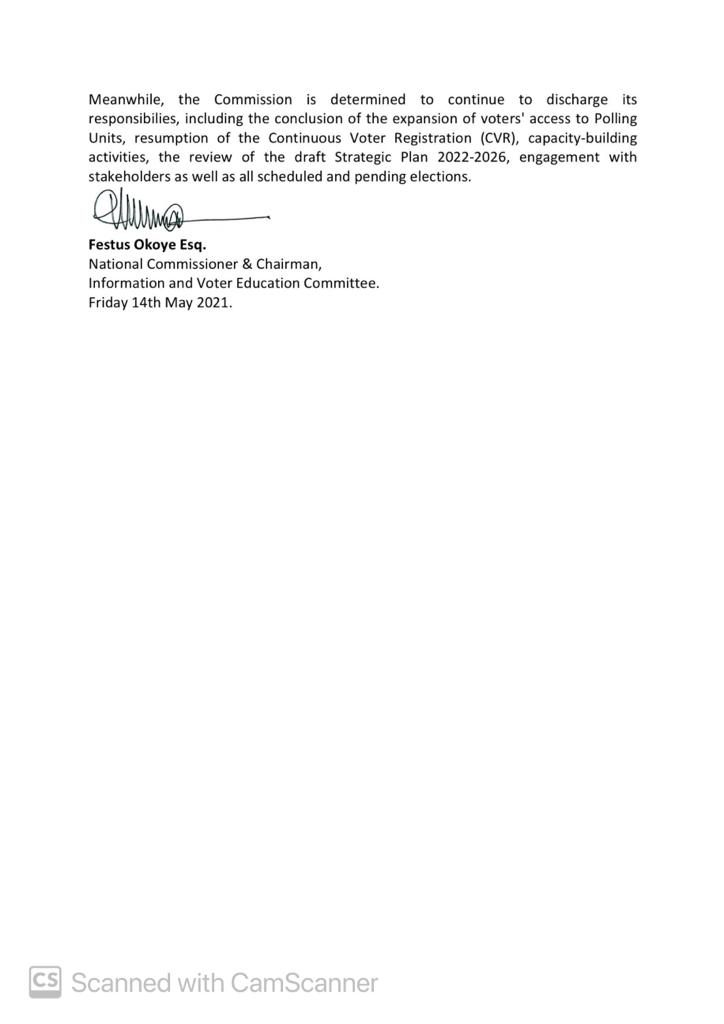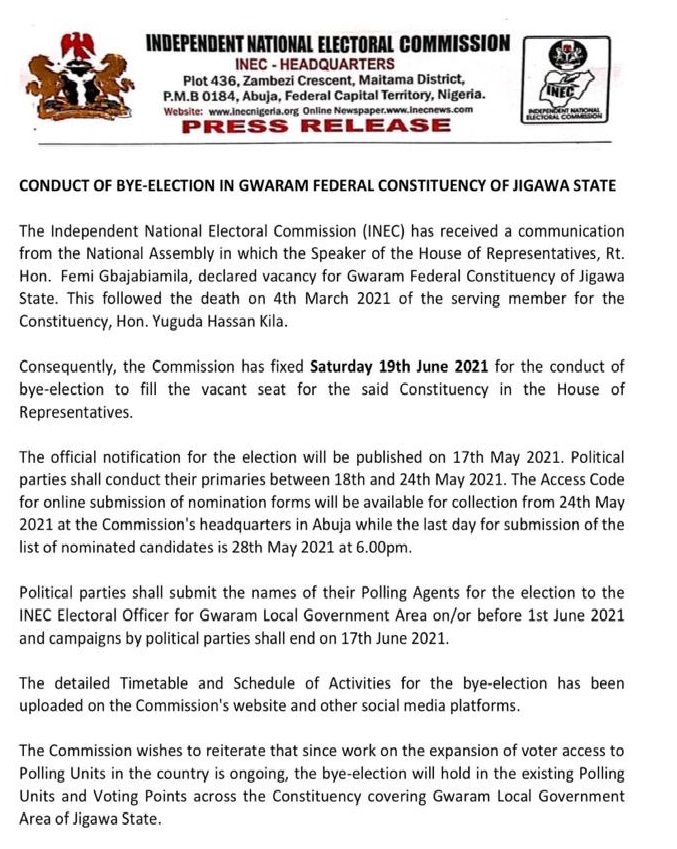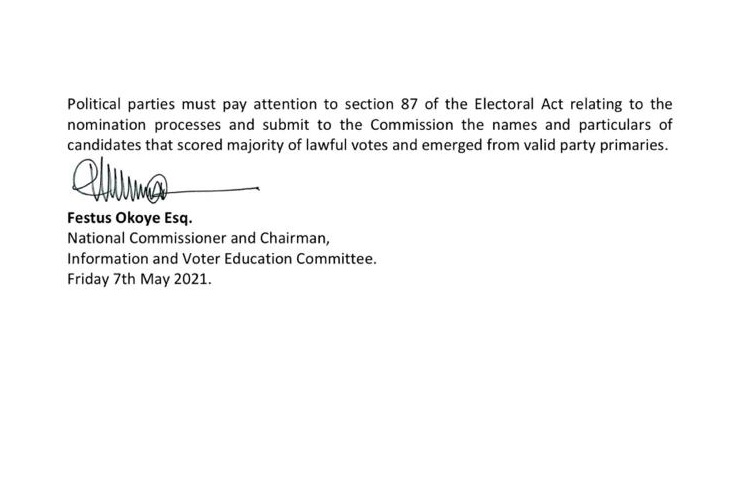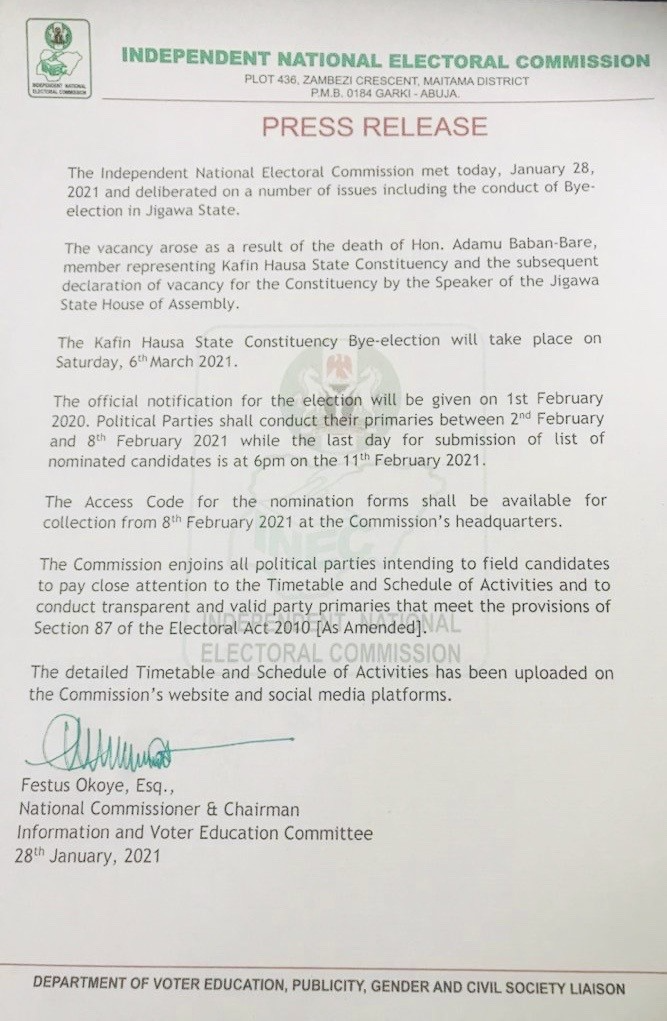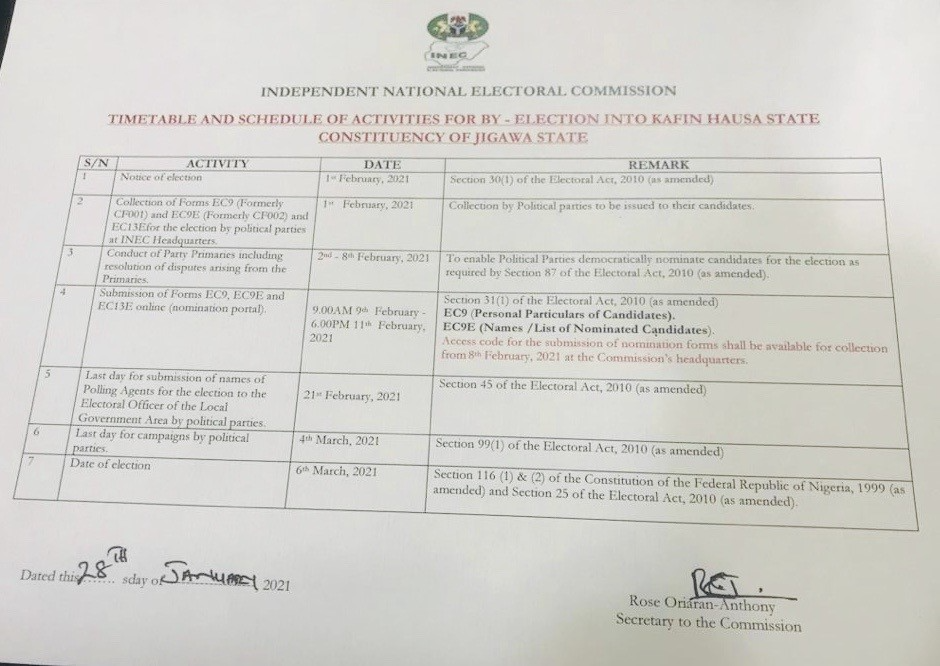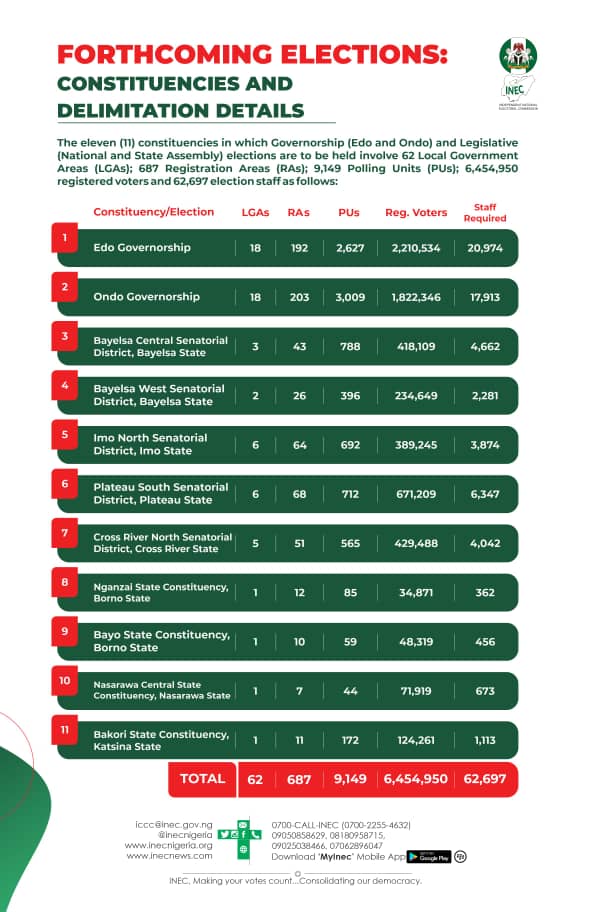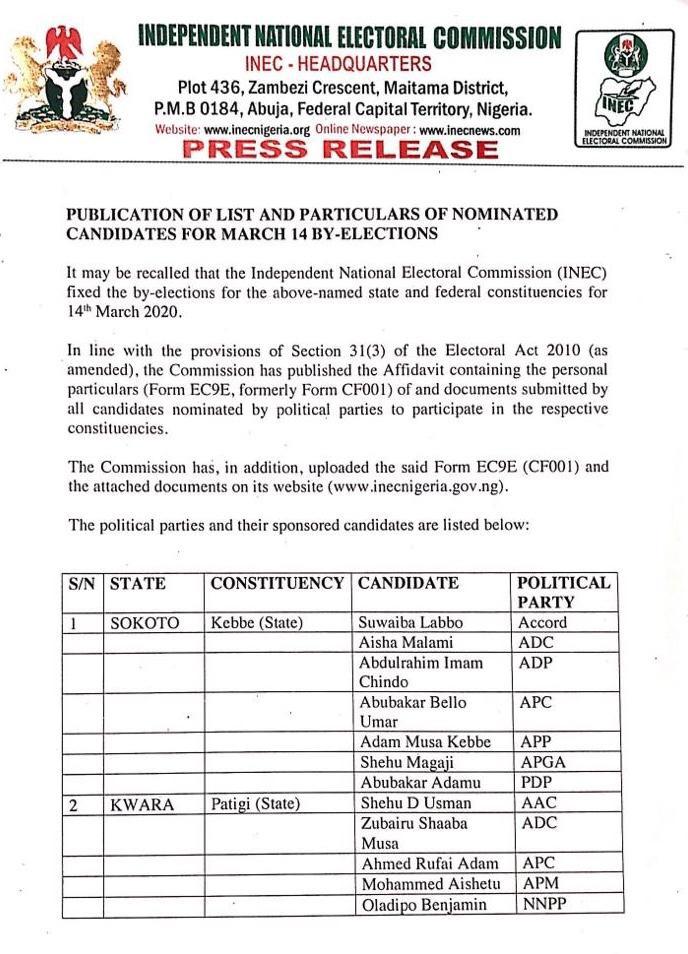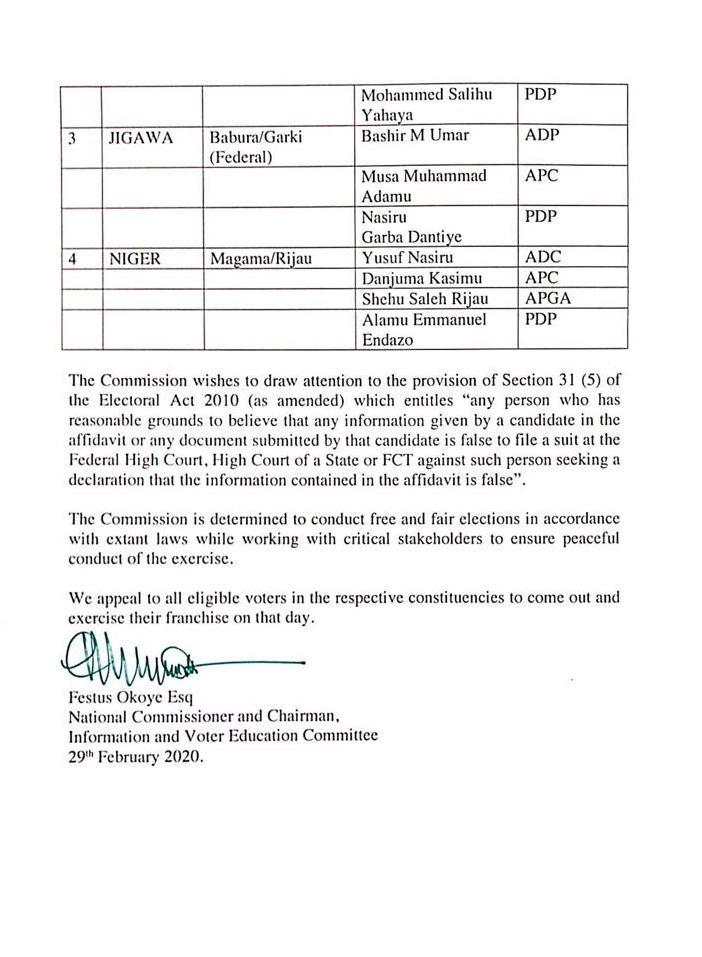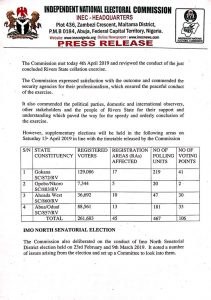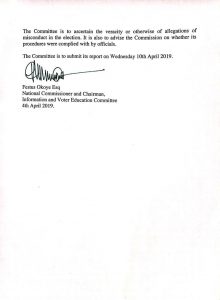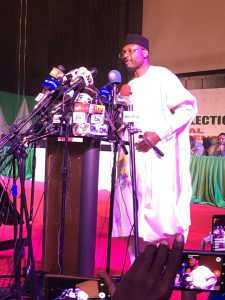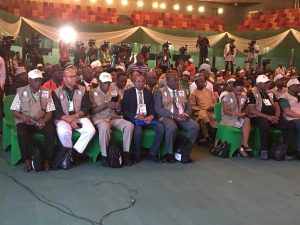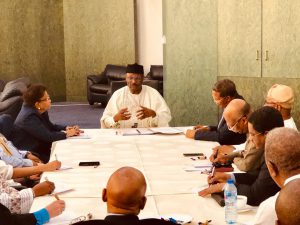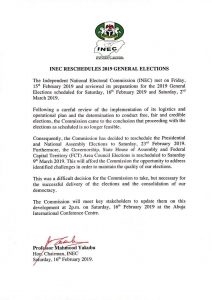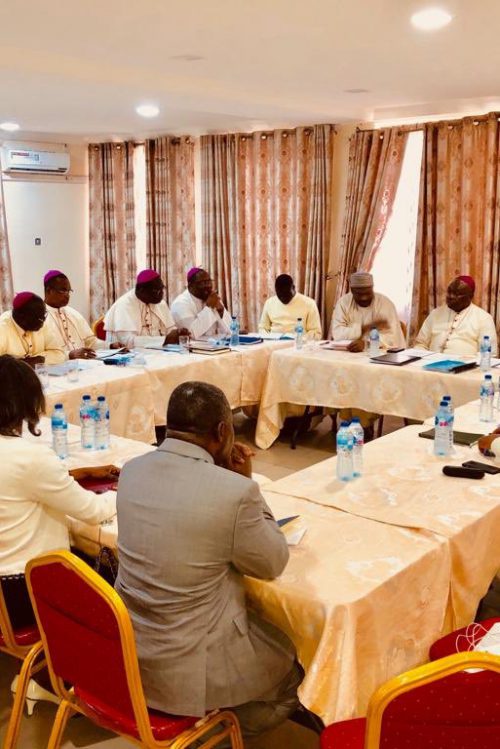National Commissioners
Leaders of Civil Society Organisations (CSOs)
The Secretary to the Commission
Other Senior Officials of the Commission
Members of the INEC Press Corps
Ladies and Gentlemen
- I welcome you all to our fourth and last regular quarterly consultative meeting for this year. I want to appreciate Civil Society Organisations (CSOs) for always responding to our invitations for consultative meetings, sometimes at short notice. You will also appreciate that we have similarly responded to your invitations for engagement with you, sometimes at short notice, the most recent being the meeting with the Civil Society Situation Room on the Ondo State Governorship election held here in Abuja yesterday involving the participation of our Resident Electoral Commissioner (REC) for the State. Similarly, some of the accredited observers are already in Ondo State for the Governorship election and have interfaced with our officials in the State. We will continue with this partnership, including capacity-building on various aspects of the electoral process jointly with some of your organisations. We will continue to welcome your comments and suggestions, particularly where they are specific and backed by verifiable and actionable evidence.
- You may recall that our last meeting, the Commission briefed you on the preparations for the Edo State Governorship election. Today’s meeting comes on the eve of the Ondo State Governorship election. As you are all aware, the election is holding on Saturday 16th November 2024 which is just 2 weeks away. The collection of Permanent Voters’ Cards (PVCs), mainly from the recent voter registration, ended two days ago. A total 64,273 PVCs were collected by voters out of the 89,777 cards delivered to the State. This represents an impressive collection rate of 71.6%. I want to appreciate the CSOs that helped to mobilise registered voters to collect their cards. In the next few days, the Commission will upload to our website the cumulative figure of all PVCs collected in each of the 3,933 Polling Units across the State for the purpose of result management as provided by law and for public information.
- As usual, we have learnt lessons from previous elections. We have improved on the voter accreditation process and the upload of results to the INEC Result Viewing (IReV) portal. There have been similar improvements in observer and media accreditation. Our voter education efforts are ongoing. The capacity of election duty staff has improved with hands-on training for especially Polling Unit officials. As we approach the Ondo State governorship election, there will be further improvements, especially in the areas of logistics for the movement of personnel and materials to both land and riverine locations to enable the prompt commencement of polls as well as the management of the processes on Election Day from voting to declaration of result. Already, Mock accreditation of voters and result upload to the IReV has been scheduled for Wednesday 6th November 2024 in 12 Polling Units across six Local Government Areas in the three Senatorial Districts of the State. Detailed locations of the centres has been uploaded to our website. Hardcopies are enclosed in your folders for this meeting.
- As early as next week, the Commission will undertake a final readiness assessment of our preparations for the Ondo election, meet with our officials, engage with stakeholders and interact with the security agencies and transport providers. On this note, I am also glad to announce that the National Peace Committee under the leadership of our respected former Head of State, General Abdulsalami Abubakar GFCR, is holding the signing of the Peace Accord for parties and candidates in Ondo State on Friday 8th November 2024.
- As the Ondo State Governorship approaches, I wish to remind CSOs that are yet to submit reports for the Edo Governorship election to do so in earnest. I also urge you to intensify your advocacy for peaceful elections, especially now that campaign by political parties and candidates is in full swing in the State. Happily, there has been no major incident of election-related violence known to the Commission in Ondo State so far. However, we are aware of flash points in some Local Government Area to which we have already drawn the attention of the security agencies.
- At the same time, I wish to remind you of your obligations as observers by complying with the Commission’s rules of engagement for accredited election observers. I wish to reiterate that the Commission reserves the right to withdraw the accreditation of any individual observer or group that violates Code of Conduct for election observation.A concise summary of the Code is contained in the 22-page document entitled “Briefing for Observers” available on our website www.inecnigeria.org.
- Even as we prepare for the Ondo State Governorship election, the Commission is not unmindful of its other electoral obligations. As you are aware, the Timetable and Schedule of Activities for the Anambra State Governorship election was released recently. As required by law, the Commission is under obligation to publish the timetable not later than 360 days before the date fixed for the election. The idea is to provide ample time to those involved in elections as political parties, candidates, observers, the media and security agencies to prepare. A copy of the Timetable is already available on our website. Again, hardcopies have been included in your folders for this meeting.
- On behalf of the Commission, I once again welcome you all to this meeting. I thank you and God bless.

